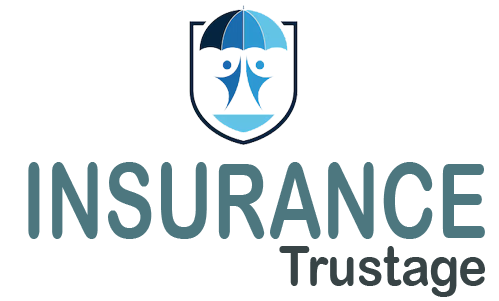Comprehensive Guide to Specialty Insurance: Protecting Unique Risks
Specialty insurance refers to the specific coverage designed to protect against unique risks that may not be covered by standard insurance policies. Standard insurance, such as home, auto, or life insurance, is sufficient for the general population. However, businesses, professionals, and industries that face unique or higher risks require tailored insurance solutions. Specialty insurance addresses these niche needs, ensuring adequate protection from potential losses or liabilities.
In this guide, we will explore various types of specialty insurance, delving into common questions people have about these coverage types. We will look into the specific industries and individuals that require these policies and how specialty insurance differs from standard insurance.
1. What is Specialty Insurance, and How Does It Differ from Standard Insurance?
Specialty insurance is designed to cover risks that standard insurance policies don’t usually cover. These risks are often more unique, specific to certain industries, or carry higher stakes. Specialty insurance provides tailored solutions for various niches that need protection beyond the scope of basic coverage.
Key Differences between Specialty Insurance and Standard Insurance:
- Tailored Coverage: Standard insurance is more generalized, offering protection for common risks, while specialty insurance is highly specific and can be customized to address uncommon or industry-specific risks.
- High-Risk Protection: Businesses or professionals engaged in high-risk activities often require specialty insurance. For example, aviation insurance or cyber liability insurance caters to higher-risk environments, which standard policies can’t handle.
- Comprehensive Scope: Specialty insurance often covers gaps that exist in traditional policies. For instance, cyber liability insurance goes beyond general business insurance to address data breaches and cyberattacks, which may not be covered by a typical business owner’s policy.
- Regulatory and Compliance Needs: Some industries, such as aviation or environmental sectors, are subject to stringent regulations. Specialty insurance policies are designed to meet specific compliance requirements for these industries.
In essence, specialty insurance provides protection for industries or professions that face unique challenges and risks. Without specialty coverage, these businesses may be left vulnerable to significant financial losses.
2. Who Needs Professional Liability Insurance, and What Does It Cover?
Professional Liability Insurance (also known as Errors and Omissions Insurance or E&O Insurance) is a type of specialty insurance designed to protect professionals from claims of negligence, mistakes, or inadequate performance in their services.
Who Needs Professional Liability Insurance?
Professional liability insurance is essential for any professional who provides specialized advice, services, or expertise. The following groups of professionals typically need this coverage:
- Doctors and Medical Practitioners: To protect against malpractice claims.
- Lawyers and Legal Consultants: To cover any errors or omissions in legal advice or services.
- Accountants and Financial Advisors: For coverage against claims of financial mismanagement or inaccurate advice.
- Consultants: To protect against claims of negligence or poor advice provided to businesses.
- Engineers and Architects: For protection from claims of design flaws, construction issues, or failure to meet project expectations.
- IT Professionals: Covering issues like software malfunctions, data breaches, or system failures.
What Does Professional Liability Insurance Cover?
Professional liability insurance primarily covers claims that arise due to:
- Errors and Omissions: Mistakes in services provided or failure to deliver a service.
- Negligence: Failure to meet professional standards or duties, resulting in financial loss for a client.
- Breach of Contract: Failing to fulfill contractual obligations with a client.
- Legal Costs: Defense costs associated with lawsuits, even if the professional is not found liable.
Without professional liability insurance, professionals risk significant financial losses due to lawsuits or claims of inadequate work. It provides peace of mind and protection, especially in industries where errors can lead to expensive consequences.
3. What Industries Typically Require Environmental Liability Insurance?
Environmental Liability Insurance is a specialized coverage that protects businesses against claims related to environmental damage or pollution caused by their operations. With environmental regulations tightening and the potential for catastrophic damages, industries that handle hazardous materials, chemicals, or waste need this type of coverage.
Industries That Require Environmental Liability Insurance:
- Manufacturing: Factories producing goods may inadvertently release pollutants into the air, water, or soil.
- Construction: Building projects often involve disturbing land, potentially leading to environmental degradation or contamination.
- Energy: Companies in oil, gas, and renewable energy sectors deal with large quantities of hazardous materials and have a high risk of spills or pollution.
- Waste Management: Businesses that handle waste disposal or recycling may face significant liabilities for improper disposal or environmental accidents.
- Agriculture: Farms and agribusinesses can contribute to soil contamination, pesticide runoff, and other environmental hazards.
- Mining: The extraction of minerals, coal, or metals is a high-risk operation involving potential pollution of land and water sources.
What Does Environmental Liability Insurance Cover?
Environmental liability insurance typically covers:
- Pollution Damage: Damage caused by the release of pollutants, including soil, air, or water contamination.
- Cleanup Costs: Costs associated with cleaning up contamination or pollution.
- Third-Party Claims: Compensation to third parties affected by environmental damage.
- Regulatory Fines and Penalties: Coverage for fines imposed by regulatory bodies due to violations of environmental laws.
- Legal Defense: Legal fees and costs associated with defending the business against claims or lawsuits.
With growing awareness around sustainability and environmental responsibility, environmental liability insurance has become a critical tool for industries that carry potential ecological risks.
4. Why Is Cyber Liability Insurance Essential for Small Businesses?
Cyber liability insurance is one of the most crucial specialty insurance policies for small businesses in today’s digital age. Cyberattacks, data breaches, and hacking incidents have become increasingly common, and small businesses are often the most vulnerable due to limited resources for cybersecurity.
Why Small Businesses Need Cyber Liability Insurance:
- Increasing Cybercrime: Cyberattacks are on the rise, and small businesses are frequently targeted because they are perceived as having weaker security measures.
- Sensitive Data: Even small businesses store sensitive data such as customer payment information, employee records, and confidential business information. A breach of this data can lead to financial losses and reputation damage.
- Regulatory Compliance: Many industries are subject to data protection laws (such as GDPR or HIPAA), and failing to protect sensitive information can lead to heavy fines.
- Financial Impact: A cyberattack can result in costly legal fees, settlements, notification expenses, and the cost of restoring lost data. For a small business, these costs can be crippling.
What Does Cyber Liability Insurance Cover?
- Data Breach Response: Coverage for the costs of responding to a data breach, including forensic analysis, legal services, and notification of affected individuals.
- Business Interruption: Reimbursement for income lost due to downtime caused by a cyber incident.
- Extortion Payments: Coverage for ransomware attacks where businesses are forced to pay to regain access to their systems.
- Third-Party Claims: Coverage for lawsuits from customers or other third parties affected by the data breach.
- Regulatory Fines: Payment of fines imposed by regulators for failing to comply with data protection regulations.
In today’s interconnected world, cyber liability insurance is a necessity for small businesses to mitigate the risks of online threats and ensure their financial security in the event of an attack.
5. How Does Aviation Insurance Protect Aircraft Operators and Owners?
Aviation insurance is a specialized form of coverage designed to protect aircraft operators and owners from various risks associated with owning, operating, or maintaining an aircraft. Given the inherent risks of aviation, standard insurance policies do not offer adequate protection, making aviation insurance critical for anyone involved in the industry.
Types of Aviation Insurance:
- Hull Insurance: Covers physical damage to the aircraft itself, whether from accidents, collisions, or other causes.
- Liability Insurance: Protects aircraft owners and operators from claims by third parties for bodily injury or property damage resulting from aircraft operations.
- Passenger Liability: Covers injuries to passengers on board the aircraft, including medical expenses or lawsuits resulting from accidents.
- Ground Risk Insurance: Covers the aircraft while it is on the ground, protecting against events like fires, hangar collapses, or damage caused by vehicles or equipment.
How Does Aviation Insurance Protect Owners and Operators?
- Financial Protection Against Accidents: Aviation insurance covers the significant financial costs associated with accidents, including aircraft repairs, replacements, and compensation for injured parties.
- Legal Liability: Aircraft operators and owners are exposed to high liability in the event of crashes or accidents that cause injury or damage. Aviation insurance ensures they are protected from the legal costs of defending themselves against lawsuits and from compensation claims.
- Compliance with Regulations: Many countries require specific types of aviation insurance to meet regulatory requirements for aircraft operation.
Without aviation insurance, the financial and legal consequences of an accident could be devastating to aircraft operators and owners.
6. What is Directors and Officers (D&O) Insurance, and When Is It Needed?
Directors and Officers (D&O) Insurance is a type of specialty insurance designed to protect company executives from personal financial losses if they are sued for decisions made in their roles as directors or officers of a company.
When Is D&O Insurance Needed?
D&O insurance is essential for businesses that have corporate officers or a board of directors. It is typically needed when:
- Public Companies: Shareholders of public companies can sue directors and officers for mismanagement, financial losses, or failure to meet regulatory requirements.
- Private Companies: Directors and officers in private companies can also face claims from stakeholders, employees, or competitors.
- Non-Profit Organizations: Even non-profits need D&O insurance to protect their executives from lawsuits related to governance decisions.
What Does D&O Insurance Cover?
- Mismanagement: Protection from claims that the directors or officers mismanaged the company or made poor business decisions.
- Breach of Fiduciary Duty: Coverage for claims that directors or officers failed to act in the best interests of the company or its shareholders.
- Legal Costs: Coverage of legal defense costs for lawsuits related to their roles as decision-makers within the company.
- Employment Practices: Protection against claims from employees, such as wrongful termination or discrimination.
D&O insurance is critical for protecting executives and their personal assets from lawsuits that may arise from their leadership roles.
7. Can I Get Insurance for Hosting Special Events Like Weddings or Parties?
Yes, you can get Special Event Insurance to cover risks associated with hosting events like weddings, parties, concerts, or corporate gatherings. This type of specialty insurance ensures you are protected from unforeseen events that could result in financial loss.
What Does Special Event Insurance Cover?
- Event Cancellation: Coverage for losses if the event is canceled due to unexpected circumstances such as severe weather, illness, or venue unavailability.
- Liability Coverage: Protection against claims of injury or property damage caused by the event. This is particularly important for large gatherings where accidents could occur.
- Liquor Liability: If alcohol is being served at the event, liquor liability insurance protects against claims of damage or injury caused by an intoxicated guest.
- Property Damage: Coverage for damage to the venue or rental property during the event.
Special event insurance ensures that event organizers or hosts do not face significant financial losses due to unforeseen incidents, making it a vital coverage for both personal and professional events.
Conclusion: The Importance of Specialty Insurance
Specialty insurance plays a crucial role in protecting businesses, individuals, and industries that face unique risks. Standard insurance policies often fall short when it comes to addressing the specific needs of high-risk environments, complex professional services, or industries governed by stringent regulations.
From protecting professionals with errors and omissions insurance to safeguarding small businesses with cyber liability coverage, specialty insurance ensures that businesses and individuals are adequately covered against potential liabilities. Whether you are hosting a large event or operating an aircraft, specialty insurance is an essential investment for peace of mind and financial protection.
As industries evolve and new risks emerge, the demand for specialized insurance solutions will continue to grow, making it a critical component of comprehensive risk management strategies.


